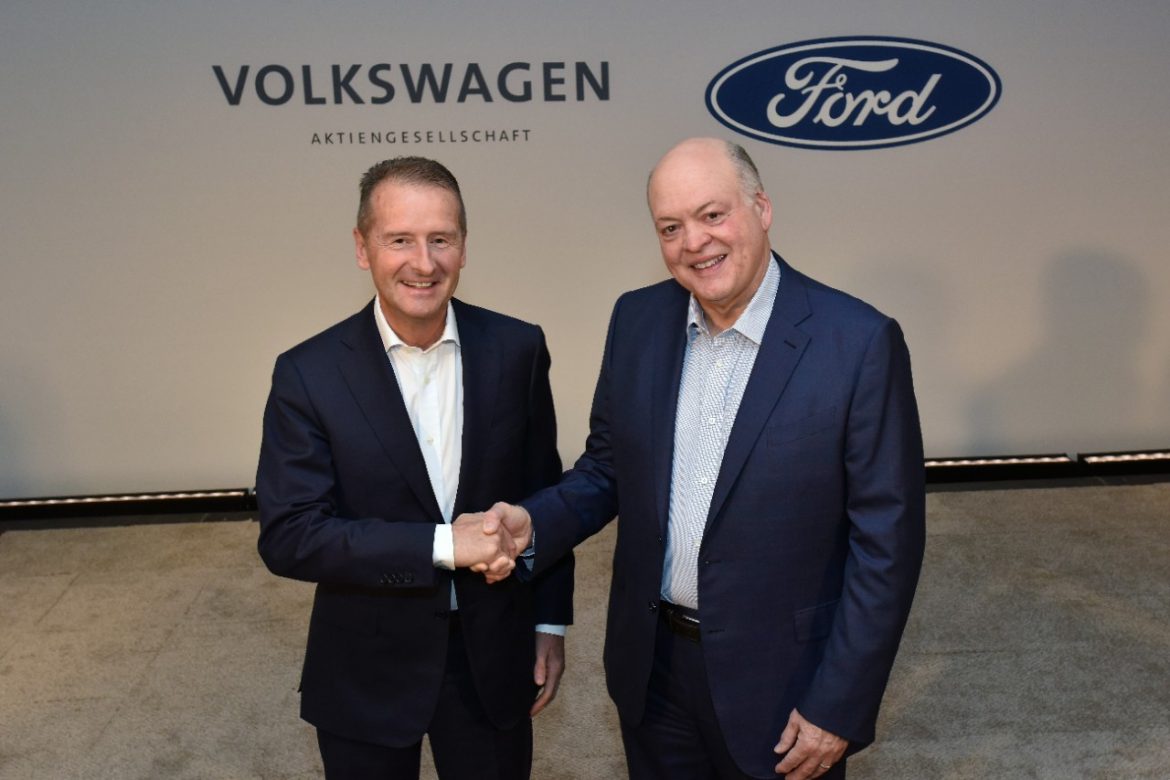If there is one legacy automaker, it’s Ford. The company is credited as the first to revolutionize the automotive industry with an affordable car, the Model T, way back in 1908 with the help of the first automotive assembly line. Since then, they have continued to reign success decade after decade. The Ford F-Series has been the number one selling vehicle in America for 42 years straight. It sits in first place with 909,330 units sold in 2018, almost double what Ram Trucks pulled off in second place. Clearly the market for trucks is a triumph of its own, but that does not set aside Ford’s willingness to lead the industry.
While the company has been one of the slowest in producing electric vehicles or even announcing future electric cars, they see the way the industry is heading and have been making moves behind the scenes. A plug-in hybrid Ford Escape is set to become available later this year and the company is working on a fully electric crossover inspired by their flagship vehicle, the Mustang, for 2020.
In 2017, Ford invested in self-driving startup Argo AI. They committed $1 billion into the project throughout the first five years. Now, the company plans to share their project with one of the future leading electric car manufacturers, the Volkswagen Group. This comes shortly after their announcement to work together on electric vehicles.
The two legacy automakers will independently be allowed to integrate Argo AI’s self-driving system into their vehicles. Ford will build electric cars using Volkswagen’s MEB platform, the one being used on the majority of Volkswagen’s announced future mass produced electric cars. The two will even begin to work together in both trucks and vans.
With this alliance, Ford is already expecting 600,000 electric vehicles sold in the next six years in just the European market using Volkswagen’s MEB platform. It is minor compared with Volkswagen’s plan to produce 15 million electric cars on the same platform in the next decade, but it is a start. Ford has pledged investing $11.5 billion in electric vehicles worldwide.
Now, the company has just acquired Quantum Signal, a mobile robotics company, to aid with its self-driving car development. Quantum Signal will help Ford with their “extensive experience in real-time simulation and algorithm development, as well as robotics, sensing and perception technology.”
To further advance its goal of launching a self-driving vehicle business, Ford has acquired Quantum Signal and will make use of its extensive experience in real-time simulation and algorithm development to develop its Transportation as a Service (TaaS) platform, as well as vehicle controls that support the customer experience, functional safety and other vehicle systems. The wide range of the group’s work portfolio means it will be able to support Ford in numerous areas as the company develops self-driving vehicles and transportation as a service business, including software development and hardware prototyping.
These alliances and acquisitions continue to strengthen Ford’s commitment towards both electrification and autonomy. The company is currently not leading either field but through working behind the scenes, they are sure to take a leading position soon enough.
